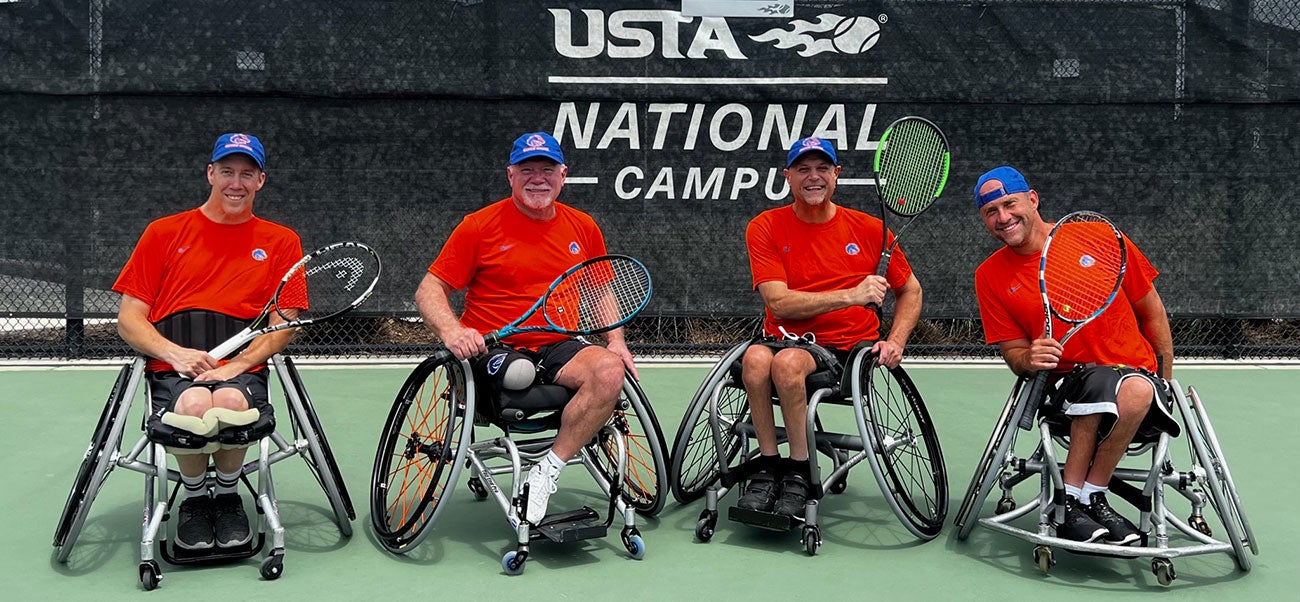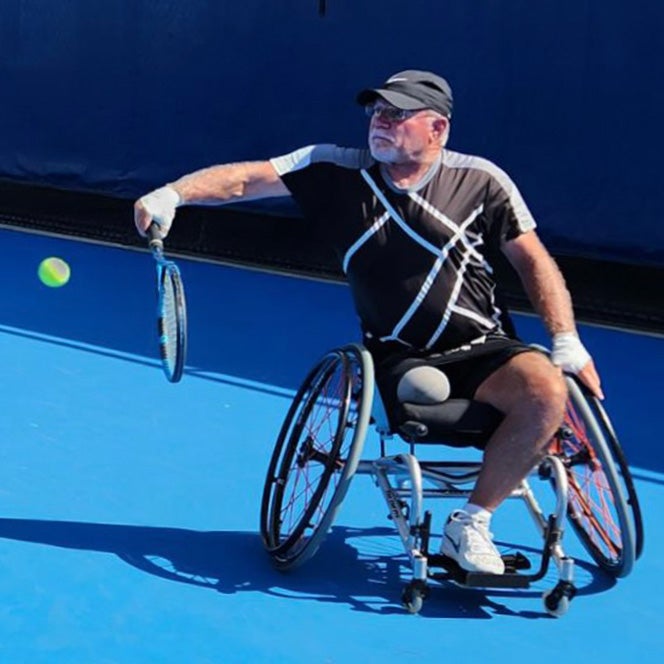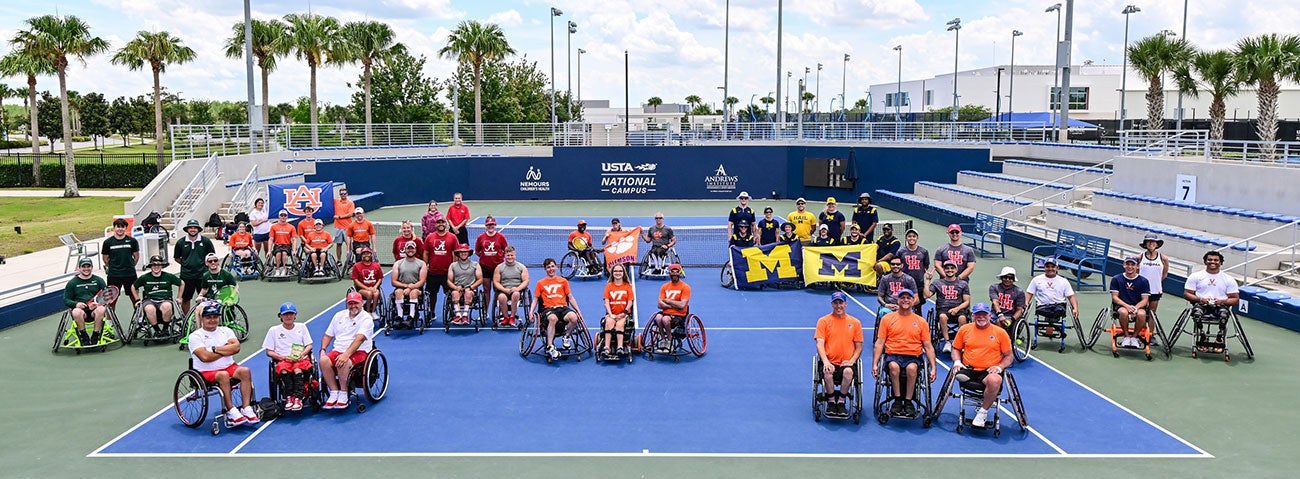
Steve Baxter has always been an athlete. Now, he’s putting his life experiences — and two Boise State degrees — to use as he builds out an adaptive sports program at Boise State.
Baxter is the director and head coach for Boise State Adaptive Athletics. The program is currently a high-energy wheelchair tennis team, but Baxter intends for it to include wheelchair basketball, track and other adaptive teams and participants going forward, and for those participants to go big at national competitions if they want to.
There is interest, a start to funding, a web presence, and for a team that has competed exactly once nationally, there is an impressive track record. And it is a lot for just one person to do.
Baxter is a two-time Boise State graduate and Navy veteran who was a military rescue swimmer before a trampoline accident and a broken neck in 2004 sent him down another path. His position is a volunteer role at this point and involves writing grant applications, fielding calls of interest, putting together rosters for events and trying to get the word out, all at the same time.
“Kinesiology has been a lot of help,” he said, noting that department administration has supported a variety of functions, including the web presence, accounting and budgeting structures, making introductions and connections. Otherwise, as he notes, “It’s a lot of work and it’s only me right now.”

It’s also a lot of money. Adaptive sports tend to be more expensive than their “able-bodied” equivalents; as Baxter points out, you need more than a basketball and a court, or a pair of shoes, or a racket and small ball to take part. Depending upon the sport, the specialized chairs the athletes play from may cost as much as $7,000 or more. With a team sport like basketball, that’s 10 or more chairs; often, different equipment is needed for each sport.
He has written for and received some grant funding and expects more soon. He would like to connect with local businesses and organizations that also might be interested in getting on board. The program he is building is modeled after comparable offerings at other colleges and universities, but is relatively unique in the region. There is only one other university in the Northwest that has any kind of adaptive sport offering (wheelchair basketball at Eastern Washington University in Spokane).
Baxter views that as a competitive advantage; the emerging program is thus in an excellent position to recruit players from across Idaho and neighboring states.
“Universities are fighting for the better players,” he said. “We’ll need every advantage to compete with schools like Alabama, Michigan, Arizona and others with more established programs.”

Two years ago, shortly after the program launched, a four-person delegation took part in the collegiate national competition for wheelchair tennis, playing well enough to earn a spot in the finals.
Baxter came to wheelchair tennis when a fellow veteran in the Treasure Valley brought him to a clinic with the Idaho Wheelchair Tennis Association 14 years ago. He has since become active with the group and serves as vice president and program director now. Baxter’s fellow veteran, Randy Corbett, also a Boise State student at the time, laid groundwork through his capstone project, which covered starting such a collegiate adaptive program.
“It’s not large, by any means,” Baxter said of the community, “but they’re fun, good people, and they’ve done a good job of bringing people in.”
He recalls imagining what a broader sports program, along the lines of similar programs elsewhere, might look like: “‘We need to have something like that here.’ It started with that.”
Launch has proceeded in fits and starts, in large part due to the COVID pandemic, which canceled some national competition. Rule changes regarding participants’ qualifications have also forced some adjustments to athlete rosters.
But with a Labor Day weekend tournament in the works, and a rising profile for adaptive sports and athletes with physical disabilities, Baxter knows the tide is turning. There is a push at the national level for adaptive tennis, track and field, and basketball to be taken up within the NCAA.
But, the program will meet participants where they are. One of the goals is to develop student athletes at all skill levels and give them opportunities to compete in sports. Students of all levels of physical disability can participate in the program and they do not need to have any sports experience.
Learn more online or reach out to Steve Baxter to get involved at stevebaxter@boisestate.edu.